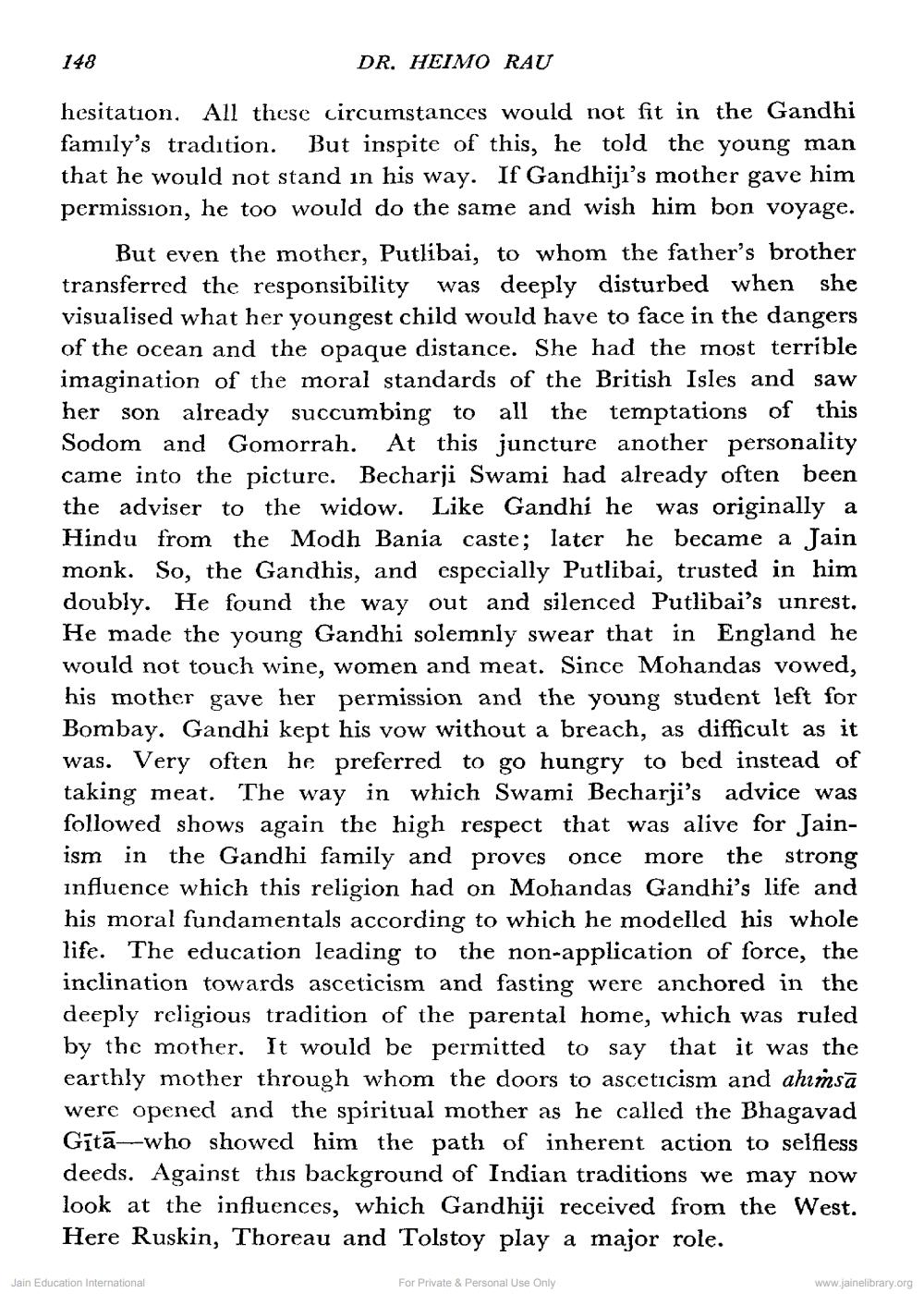________________
148
DR. HEIMO RAU
hesitation. All these circumstances would not fit in the Gandhi family's tradition. But inspite of this, he told the young man that he would not stand in his way. If Gandhiji's mother gave him permission, he too would do the same and wish him bon voyage.
But even the mother, Putlibai, to whom the father's brother transferred the responsibility was deeply disturbed when she visualised what her youngest child would have to face in the dangers of the ocean and the opaque distance. She had the most terrible imagination of the moral standards of the British Isles and saw her son already succumbing to all the temptations of this Sodom and Gomorrah. At this juncture another personality came into the picture. Becharji Swami had already often been the adviser to the widow. Like Gandhi he was originally a Hindu from the Modh Bania caste; later he became a Jain monk. So, the Gandhis, and especially Putlibai, trusted in him doubly. He found the way out and silenced Putlibai's unrest. He made the young Gandhi solemnly swear that in England he would not touch wine, women and meat. Since Mohandas vowed, his mother gave her permission and the young student left for Bombay. Gandhi kept his vow without a breach, as difficult as it was. Very often he preferred to go hungry to bed instead of taking meat. The way in which Swami Becharji's advice was followed shows again the high respect that was alive for Jainism in the Gandhi family and proves once more the strong influence which this religion had on Mohandas Gandhi's life and his moral fundamentals according to which he modelled his whole life. The education leading to the non-application of force, the inclination towards asceticism and fasting were anchored in the deeply religious tradition of the parental home, which was ruled by the mother. It would be permitted to say that it was the earthly mother through whom the doors to asceticism and ahimsā were opened and the spiritual mother as he called the Bhagavad Gītā who showed him the path of inherent action to selfless deeds. Against this background of Indian traditions we may now look at the influences, which Gandhiji received from the West. Here Ruskin, Thoreau and Tolstoy play a major role.
Jain Education International
For Private & Personal Use Only
www.jainelibrary.org




